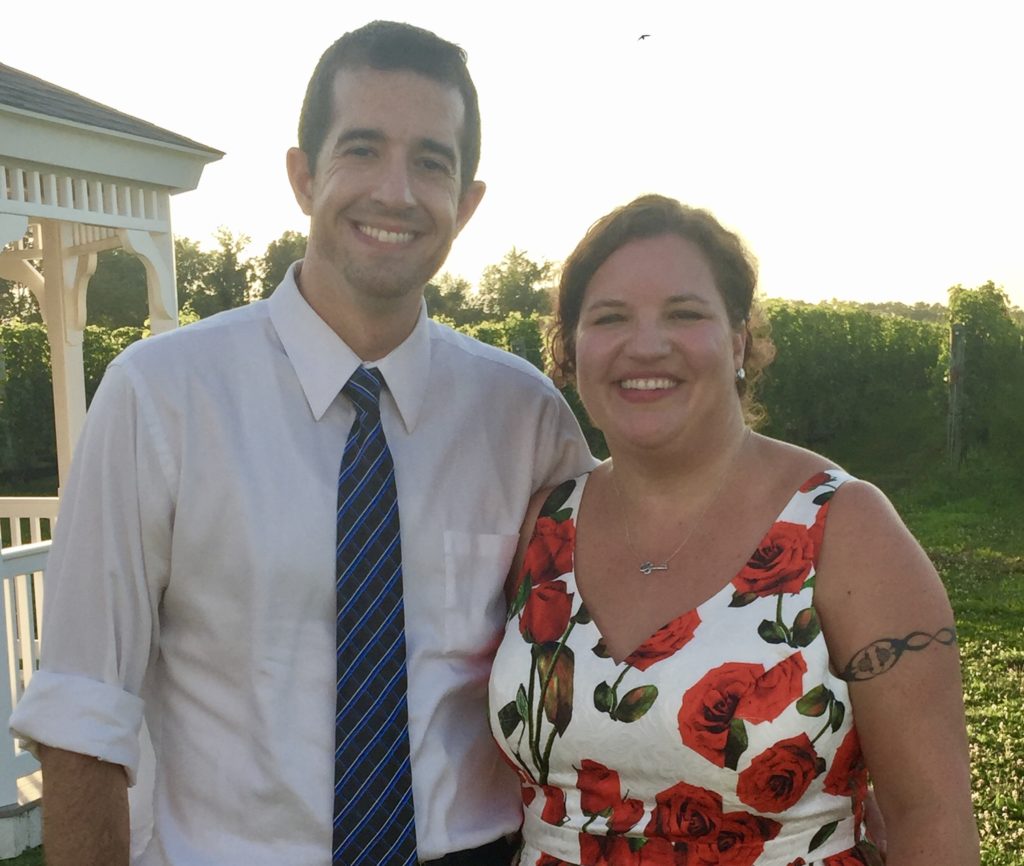Joe and Kristen have been friends for several years, and met online. While they talk frequently about a number of philosophical theories, one of the things that Joe has learned from Kristen is about the nature of using crazy language – or the language of mental illness.

If there is anything that sticks out amongst the number of lessons that my friendship with Kristen has taught me over the years, it is the aspect of calling things “crazy” in daily conversations.
Nod with me if you’ve used any of these phrases:
“I’m just so crazy right now with e-mails.”
“Did you see the line at the coffee shop? Craziness.”
“I can’t believe I got accepted to present at a national conference, crazy right?”
“You know what’s crazy? The results of the election. That’s crazy.”
Where does crazy language come from?
The origin of the word “crazy” dates back to the 1500s. At that time, people used crazy to define someone that was diseased or sickly. It was also used to describe someone that was “full of cracks or flaws” in those times (according to the Online Etymology Dictionary). Does that sound like a word you’d use to try and describe something in a positive light?
You see, the meaning of the word crazy ties directly to how we interpret mental health. If we are so comfortable labeling a line of people, a full inbox, or a meeting agenda as “crazy,” how much are we marginalizing those who suffer and live with mental illness? Those who, years ago and even now, may be described as “full of cracks or flaws” or “diseased?”
Using crazy language marginalizes mental illness
As a result, I’ve stopped using the word “crazy” in conversation, or at least recognize when I use it. I know folks who struggle, fight and survive their battles with mental illness on a daily basis; there is nothing crazy about them. What seems absurd to me is the general disregard to mental health and wellness in our language. While we are seemingly heightening our awareness around language, we still consider mental health and wellness an “other” topic and not a main topic of discussion.
Unfortunately, it seems that mental health and wellness is following the path of diversity. I see this at conferences, human resource orientations, graduate school, college and even high school. During undergrad and professional involvement as a new member of higher education, diversity was the must-have training for every department, experience or conference. Whatever it was, everything seemed to use the word “diversity.” As you can see in many aspects of today’s world, the success of that is questionable depending on how you look at it.
I fear the same for mental health, illness and wellness. I fear society will say we’ve talked about it or researched it – but will we ever act on it? Will we ever change as a result of it?
The impact of using crazy language
I want to return to how I have changed because of my friendship with Kristen. It’s not just about me becoming aware of the word “crazy” and the meaning and impact it can have when used. It’s the fact that she took the time to educate me on the impact of it, both in terms of her and society, without being on a soap box, without giving a lecture, without shaming and without any sense of superiority. She never had an attitude of “I’ve lived it, so I’m the expert.” She did it by being herself.
Next time you start to describe something as “crazy,” try associating it with a friend who has mental illness. How does that sound? Something tells me that saying, “My inbox is so Kristen right now” might permanently shift your perspective and give you a moment of pause and reflection that many of us need daily.
Editor’s note: For more suggestions on how to change every “crazy talk,” make sure to check out our Toolkit for additional resources!
